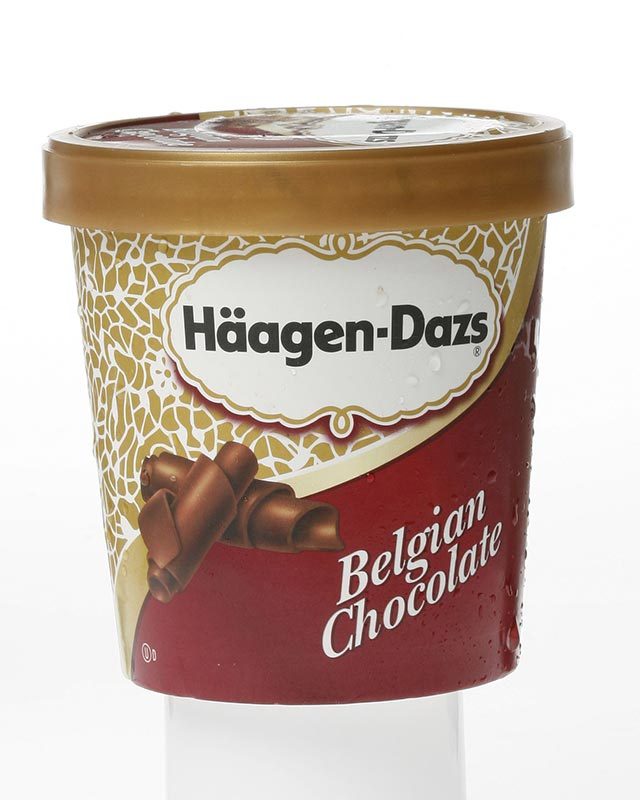Everyone knows (and loves) Häagen-Dazs ice cream, but what does Häagen-Dazs actually mean?

This Is the Real Secret Behind Häagen-Dazs Ice Cream’s Name

When it comes to Häagen-Dazs ice cream, you already know what it tastes like—rich, creamy, premium—but what does Häagen-Dazs mean? At first glance, or first pronunciation, you might assume it originates somewhere foreign, perhaps the mountains of Switzerland or the finest ice cream shops in Germany. Right? Wrong.
Keep reading to discover the true meaning behind one of the world’s most recognizable ice cream brands.
Get Reader’s Digest’s Read Up newsletter for more knowledge, humor, cleaning, travel, tech and fun facts all week long.
Where did the name Häagen-Dazs come from?
In business, the right name is everything. Would Pepsi sell as much soda if it were still called Brad’s Drink? Probably not. And Reuben and Rose Mattus, the husband-and-wife entrepreneurs behind Häagen-Dazs, knew as much when they started their cold-confection company in the Bronx in 1959.
Selling delicious treats was in Reuben’s blood. His uncle had been selling homemade Italian lemon ice on the streets of Brooklyn since Reuben was 10. Eventually, this expanded into a family-run business called Senator Frozen Products, which sold ice pops and chocolate-covered ice cream bars from a horse-drawn cart in the Bronx.
At the beginning of Reuben and Rose’s venture, business was sparse. And for that, Reuben blamed not only the ice cream but also the name.
What does Häagen-Dazs mean?

Reuben and Rose knew they wanted their company’s name to evoke an aura of old-world craftsmanship. “If you’re the same like everybody else, you’re lost,” Reuben told the online magazine Tablet. “The number one thing was to get a foreign-sounding name.” Both Jews of Polish descent, Reuben and Rose were drawn to the Danish language. (“The only country which saved the Jews during World War II was Denmark,” Reuben said.) And so he cobbled together a name: Häagen-Dazs. A fine, Danish-sounding name that means … absolutely nothing.
“Häagen-Dazs doesn’t mean anything,” Reuben said. “[But] it would attract attention, especially with the umlaut.”
It is left unsaid whether Reuben knew the Danish language doesn’t even use umlauts.
The name game pays off
Through a combination of improved recipes, targeted marketing (Rose herself dressed up in elegant clothing to give away free samples at local grocers near New York University) and a “rich” name that continues to entice shoppers today, Häagen-Dazs rose to prominence in the ice cream industry.
The company was eventually purchased by Pillsbury in 1983, and later by Nestlé, which owns it today. In the end, Häagen-Dazs became ice cream royalty by creating a deliciously foreign-sounding name for their product, and ice cream lovers are happier for it.
Why trust us
At Reader’s Digest, we’re committed to producing high-quality content by writers with expertise and experience in their field in consultation with relevant, qualified experts. We rely on reputable primary sources, including government and professional organizations and academic institutions as well as our writers’ personal experiences where appropriate. We verify all facts and data, back them with credible sourcing and revisit them over time to ensure they remain accurate and up to date. Read more about our team, our contributors and our editorial policies.
Sources:
- Tablet: “Ice Cream’s Jewish Innovators”
- Häagen-Dazs: “It all began in 1960 with two Polish immigrants from the Bronx”






















